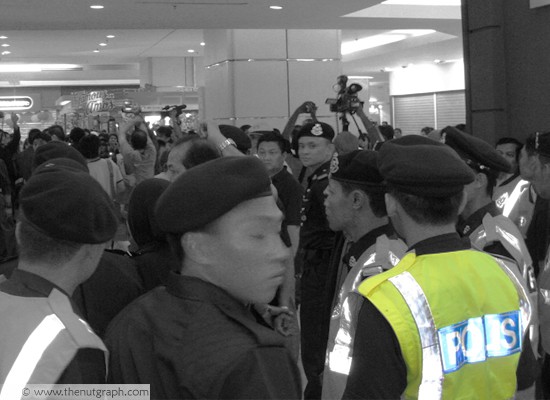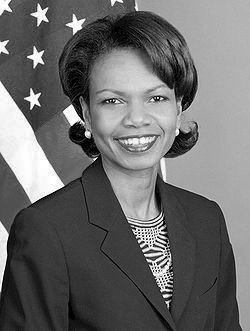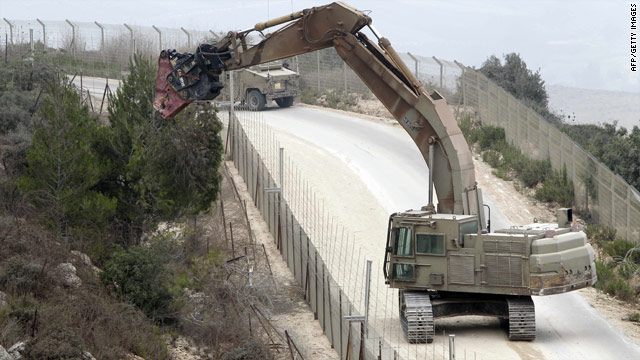By B Nantha Kumar
BUKIT JALIL: The 41 families, whose houses are on the brink of being devoured by Kuala Lumpur City Hall (DBKL) bulldozers, have turned to Prime Minister Najib Tun Razak for help.
This morning, the residents submitted a memorandum to Najib's office in Putrajaya, requesting for more time to decide on a new offer made by DBKL.
After living and working in the Bukit Jalil estate for decades, the residents felt that DBKL's three-day grace period to them to make such an important decision was simply unfair.
“We live in a democratic country. Malaysia is not a communist state,” stressed K Balakrishnan, a member of the estate action force committee.
"They gave us only three days to decide. Many of the people here are uneducated. How do you expect them to make a decision within three days?” he asked.
The memorandum was also sent to Selangor Menteri Besar Khalid Ibrahim, Federal Territories and Urban Well-being Minister Raja Nong Chik Zainal Abidin and Human Resources Minister Dr S Subramaniam.
Yesterday, DBKL had offered the residents a RM80,000 flat unit each for RM35,000. The residents were given until midnight tomorrow to decide.
After their eviction deadline expired on Tuesday, the residents vowed to put up a fight even if it meant facing the wrath of the police's anti-riot personnel.
They also believed that there is more than what meets the eye behind the claim that the land, which was allegedly sold to a former minister, would be converted into a cemetery.
'A ploy to break us up'
Meanwhile, Balakrishnan said the residents had little faith in DBKL, and the new offer was also enveloped in uncertainty, with regards to obtaining bank loans to purchase the flat units.
Echoing his views, another resident said there were several former estate workers who took up a similar offer from DBKL in the past but could not secure banks loans.
"Yes, we can take up the offer but will the banks give us the housing loans. What's the point in taking up the offer but not being able to get the loans. DBKL must address this issue,” he said.
The resident, who declined to be named, also accused DBKL of using underhand tactics to get them to vacate their houses.
According to him, former estate workers, who took such offers, were being used to convince them to take up the new offer.
"Yesterday, I received a note from a former resident who said that if I agreed to move, DBKL will give me an additional RM10,000.
“If this is true, they should make the offer public and let us decide. Make the offer to all of us, not only to a selected few. This is just a ploy to break us up," he said.
While the residents denied squatting on the land, DBKL, however, claimed that only 12 of the 41 families were former estate workers, while the rest were squatters.
BUKIT JALIL: The 41 families, whose houses are on the brink of being devoured by Kuala Lumpur City Hall (DBKL) bulldozers, have turned to Prime Minister Najib Tun Razak for help.
This morning, the residents submitted a memorandum to Najib's office in Putrajaya, requesting for more time to decide on a new offer made by DBKL.
After living and working in the Bukit Jalil estate for decades, the residents felt that DBKL's three-day grace period to them to make such an important decision was simply unfair.
“We live in a democratic country. Malaysia is not a communist state,” stressed K Balakrishnan, a member of the estate action force committee.
"They gave us only three days to decide. Many of the people here are uneducated. How do you expect them to make a decision within three days?” he asked.
The memorandum was also sent to Selangor Menteri Besar Khalid Ibrahim, Federal Territories and Urban Well-being Minister Raja Nong Chik Zainal Abidin and Human Resources Minister Dr S Subramaniam.
Yesterday, DBKL had offered the residents a RM80,000 flat unit each for RM35,000. The residents were given until midnight tomorrow to decide.
After their eviction deadline expired on Tuesday, the residents vowed to put up a fight even if it meant facing the wrath of the police's anti-riot personnel.
They also believed that there is more than what meets the eye behind the claim that the land, which was allegedly sold to a former minister, would be converted into a cemetery.
'A ploy to break us up'
Meanwhile, Balakrishnan said the residents had little faith in DBKL, and the new offer was also enveloped in uncertainty, with regards to obtaining bank loans to purchase the flat units.
Echoing his views, another resident said there were several former estate workers who took up a similar offer from DBKL in the past but could not secure banks loans.
"Yes, we can take up the offer but will the banks give us the housing loans. What's the point in taking up the offer but not being able to get the loans. DBKL must address this issue,” he said.
The resident, who declined to be named, also accused DBKL of using underhand tactics to get them to vacate their houses.
According to him, former estate workers, who took such offers, were being used to convince them to take up the new offer.
"Yesterday, I received a note from a former resident who said that if I agreed to move, DBKL will give me an additional RM10,000.
“If this is true, they should make the offer public and let us decide. Make the offer to all of us, not only to a selected few. This is just a ploy to break us up," he said.
While the residents denied squatting on the land, DBKL, however, claimed that only 12 of the 41 families were former estate workers, while the rest were squatters.


























![IMG_2019_thumb[3] IMG_2019_thumb[3]](http://www.hrp-my.org/wp-content/uploads/2010/08/IMG_2019_thumb3.jpg)
 KUALA LUMPUR, Aug 4 – The Home Ministry insisted today that it has closed the file on Suara Keadilan’s printing permit, indicating that the PKR organ would not be obtaining its long-awaited renewal.
KUALA LUMPUR, Aug 4 – The Home Ministry insisted today that it has closed the file on Suara Keadilan’s printing permit, indicating that the PKR organ would not be obtaining its long-awaited renewal.